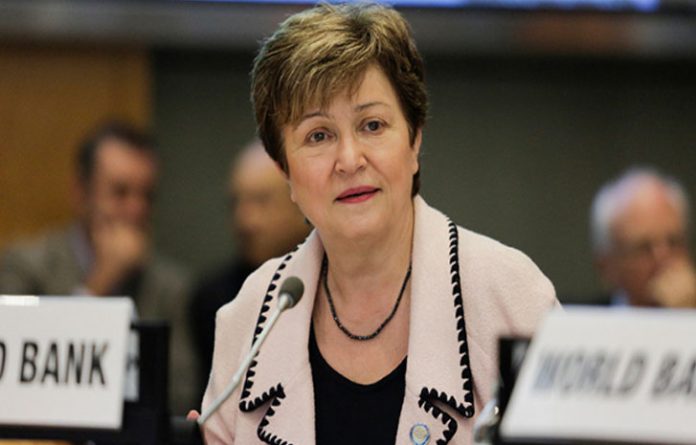The Financial Counsellor and Director of the IMF’s Monetary and Capital Markets Department, Mr. Tobias Adrian said that the covid-19 crisis significantly prompted capital outflow from emerging markets to the tune of $100 billion.
Speaking at the ongoing virtual Spring Meetings of the IMF and World Bank yesterday, he said the rate of the capital flight was faster and more valued compared to the 2008 global economic crisis.
At the press briefing of the “Global Financial Stability Report April 2020”, Adrian also urged the central banks and banks in emerging markets to provide liquidity in the system to help alleviate and cushion further economic downturn.
Responding to a question on what he would advise emerging markets and undeveloped economies as they face unprecedented capital outflow he said: “We have indeed seen that capital outflows from emerging markets have been large and more than $100 billion have flown out and that a is a record number and is much larger and much faster than the 2008 crisis.
“It is reflective of the general risk evasion of investors who have moved away from risky assets into safe assets such as cash, bills or money market instruments. And so emerging markets that are often judged to be riskier have been hit by this capital outflows.
He said emerging markets should take policy measures along further measures on aggressive health measures are key as the virus needs to be curtailed. “Secondly, targeted large fiscal policies where fiscal policy space is available can help to mitigate the economic impact of the health curtailment measure.
Thirdly, monetary policy measure is key and in many emerging markets, there are key deflationary pressures at the moment so that there is room to cut interest rates and to ease monetary policies. And indeed, the majority of emerging markets have eased monetary policy as we have seen that this morning south Africa has eased monetary policy.
“Fourthly, financial policies have to be aimed at banks and other financial institutions using the levels of capital and levels of liquidity it has accumulated in good times and some of that capital can be thrown out that is perfectly consistent with regulatory standards and accounting standards.”
Speaking on the roles banks would place, he said: “Banks are in a better position today than they were at the onset of the Global Financial Crisis. Banks have more capital and liquidity than in the past, and they have been subject to stress tests and greater supervisory scrutiny in recent years.
“In addition, the substantial and coordinated action by central banks to provide liquidity to banks, in many economies, should also help alleviate potential liquidity strains.
“Nonetheless, the resilience of banks may be tested in the face of a sharp slowdown in economic activity which may turn out to be more severe and prolonged than currently anticipated.”
He added that central banks will remain crucial to safeguarding the stability of global financial markets and maintaining the flow of credit to the economy. But this crisis is not simply about liquidity. It is primarily about solvency at a time when large segments of the global economy have come to a complete stop. As a result, fiscal policy has a vital role to play.
“Together, monetary, fiscal, and financial policies should aim to cushion the impact of the COVID-19 shock and to ensure a steady, sustainable recovery once the pandemic is under control. Close, continuous international coordination will be essential to support vulnerable countries, to restore market confidence, and to contain financial stability risks.”
“The IMF is ready to assert the full weight of its resources first, to help protect the world’s most vulnerable economies, and, for the long term, to strengthen the eventual recovery,” he added


